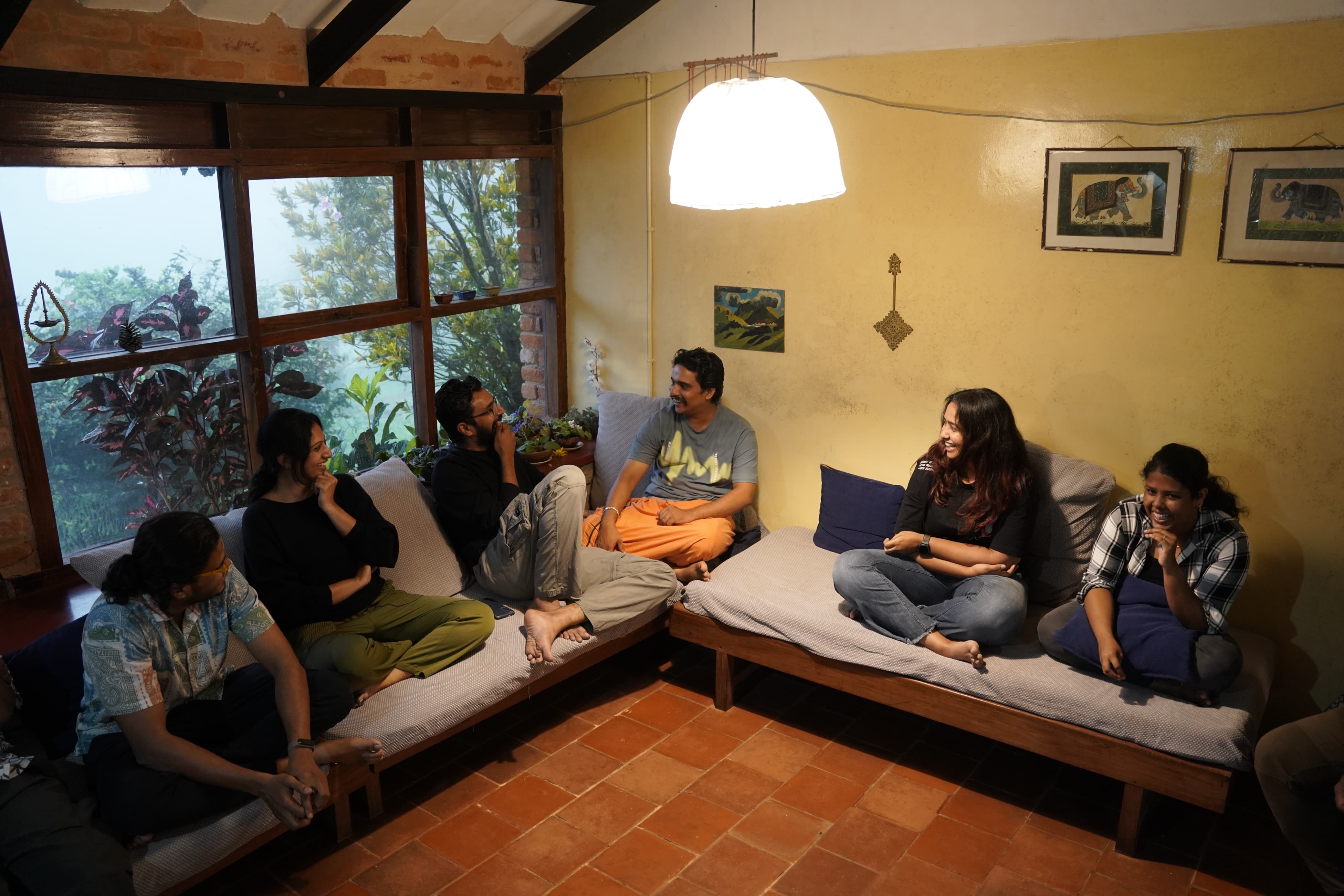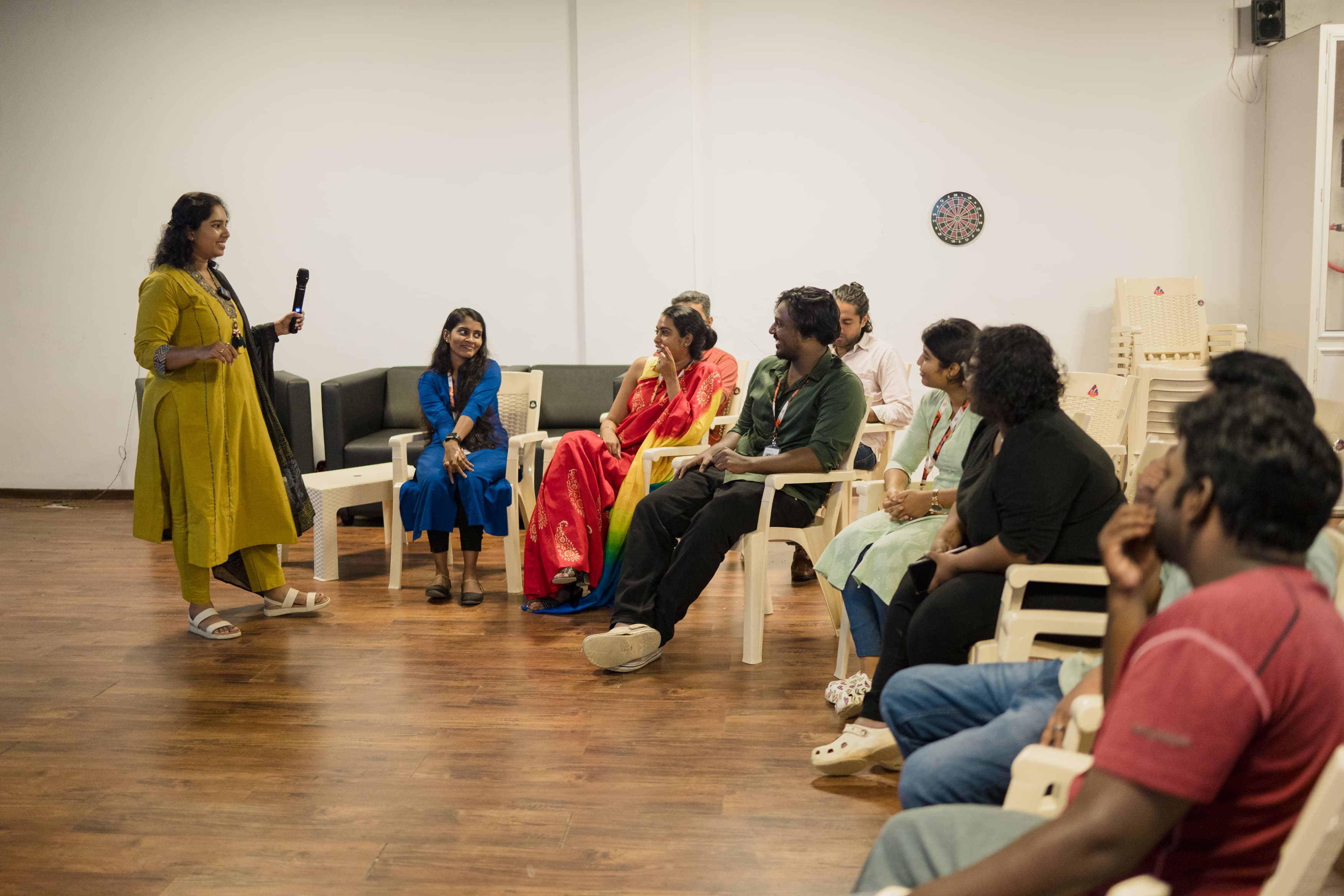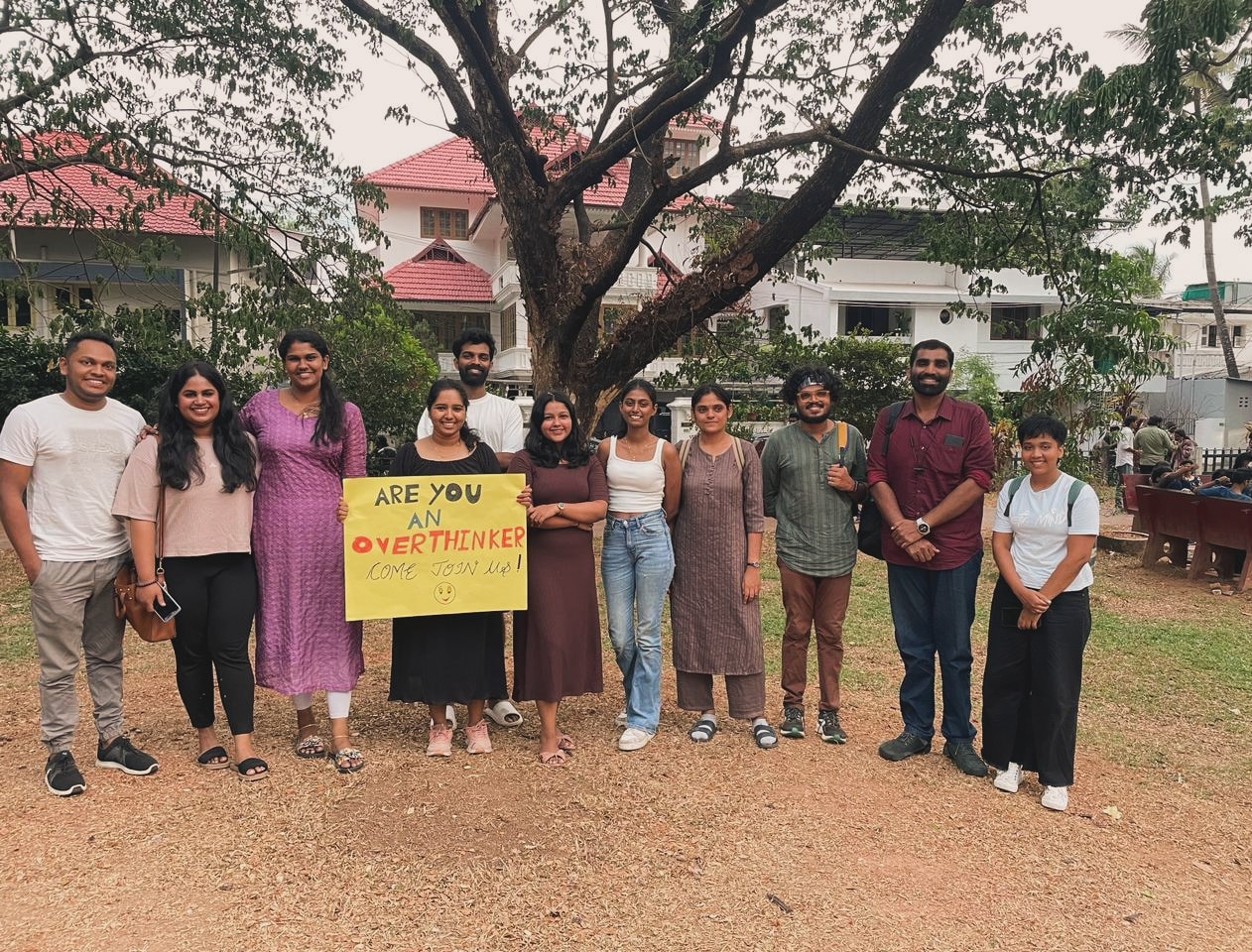The biggest challenge in mental health is the treatment gap—a lack of accessibility, awareness, and timely intervention.
At ThoughtSphere, we strive to make this solution simple.We don’t promise miracles, but we do promise to be there, offering the tools and guidance needed to build and navigate mental health challenges.

Overview
Mental health care should be simple, accessible, and immediate—yet, for many, it remains out of reach. At ThoughtSphere, we are transforming the way individuals, organizations, and professionals engage with mental well-being by providing a tech-driven, proactive approach to mental health support.
Our platform seamlessly connects people with experts for on-demand consultations, both online and offline. We also empower entrepreneurs with a ready-to-launch model for mental health centers, offering both technological and psychological expertise. For mental health professionals, we provide a larger audience and smarter tools to expand their impact.
By breaking down barriers and simplifying access, ThoughtSphere ensures that help is always available when it’s needed most—creating a world where mental wellness is not just a goal, but a reality.

Core Values
A future where mental health support is seamless, stigma-free, and always available—
this is what we’re building.
Through innovation and expertise, we are creating a world where seeking help is effortless, empowering people to take control of their mental well-being with confidence.
Accessibility
Mental health support should be within reach for everyone, anytime, anywhere
Awareness
Knowledge empowers—understanding mental health is the first step to well-being
Immediecy
The right support at the right time can change everything.
events we did
Why choose us
Instant Access to Experts
Get connected with professionals through our seamless platform, offering both online and offline consultations whenever you need them
Tech-Driven Solutions
Innovative ecosystem that ensures accessibility and smooth experience for individuals, organizations, and professionals
End-to-End Support
A plug-and-play model for setting up mental health centers, offering both the technology and expertise to build a successful business
Scalable Solutions for Organizations
Businesses can implement tailored mental health programs to improve employee well-being, productivity, and workplace harmony
Growth Platform for Experts
Mental health experts can expand their reach with a wider audience, and enhance their impact with powerful network and tools
A Proactive Approach
Beyond awareness, we focus on real, actionable solutions that ensure mental health support is available at the right time, exactly when it’s needed
Recognition & Awards




Frequently Asked Questions
While the terms “therapy” and “counseling” are often used interchangeably, there may be slight variations in their focus and approach. In general, therapy tends to address deeper psychological issues and may involve more intensive techniques, while counseling often focuses on providing support and guidance for individuals dealing with specific challenges or life transitions.
This can include those experiencing mental health problems such as anxiety and depression, addictive behaviours and childhood behaviour disorders. Psychologists use evidence-based approaches that are tailored to suit each client and circumstance and they assess, diagnose and treat a wide range of clients and areas of concern.
Therapy sessions typically last for 50 minutes but can vary depending on the therapist and the specific needs of the client. Some therapists may offer longer sessions or shorter sessions for individuals with limited time or resources.
Your first therapy session will typically involve a brief introduction to the therapist, followed by a discussion of your concerns and goals. Your therapist will ask you questions to get a better understanding of your situation and determine the most appropriate course of treatment. They will also provide you with information about the therapy process and answer any questions you may have.
Yes, we offer therapy sessions in the list of languages offered in home page. Please let us know your language preference when scheduling an appointment.
Yes, therapy can be beneficial for addressing relationship issues, improving communication, and building stronger connections with loved ones.
Yes, we offer anonymous therapy sessions to protect your privacy and ensure a comfortable and confidential space for your healing journey.
Combining yoga with mental health therapy can offer numerous benefits, including:
- Reduced stress and anxiety: Yoga practices like deep breathing, meditation, and physical postures can help regulate the nervous system and reduce stress hormones, leading to a sense of calm and relaxation.
- Improved mood and well-being: Yoga can boost mood by increasing levels of endorphins, the body’s natural feel-good chemicals. Regular practice can also improve self-esteem and body image.
- Enhanced focus and concentration: Mindful yoga practices can help improve focus and concentration by training the mind to stay present and grounded.
- Improved sleep quality: Regular yoga practice can promote better sleep by reducing stress and improving relaxation.
- Increased self-awareness: Yoga can help individuals become more aware of their thoughts, feelings, and bodily sensations, leading to greater self-understanding and self-acceptance.
- Complementary treatment: Yoga can complement traditional mental health therapies by providing additional tools for managing symptoms and promoting overall well-being.
By incorporating yoga into your mental health treatment plan, you can experience the synergistic benefits of both physical and mental wellness.







